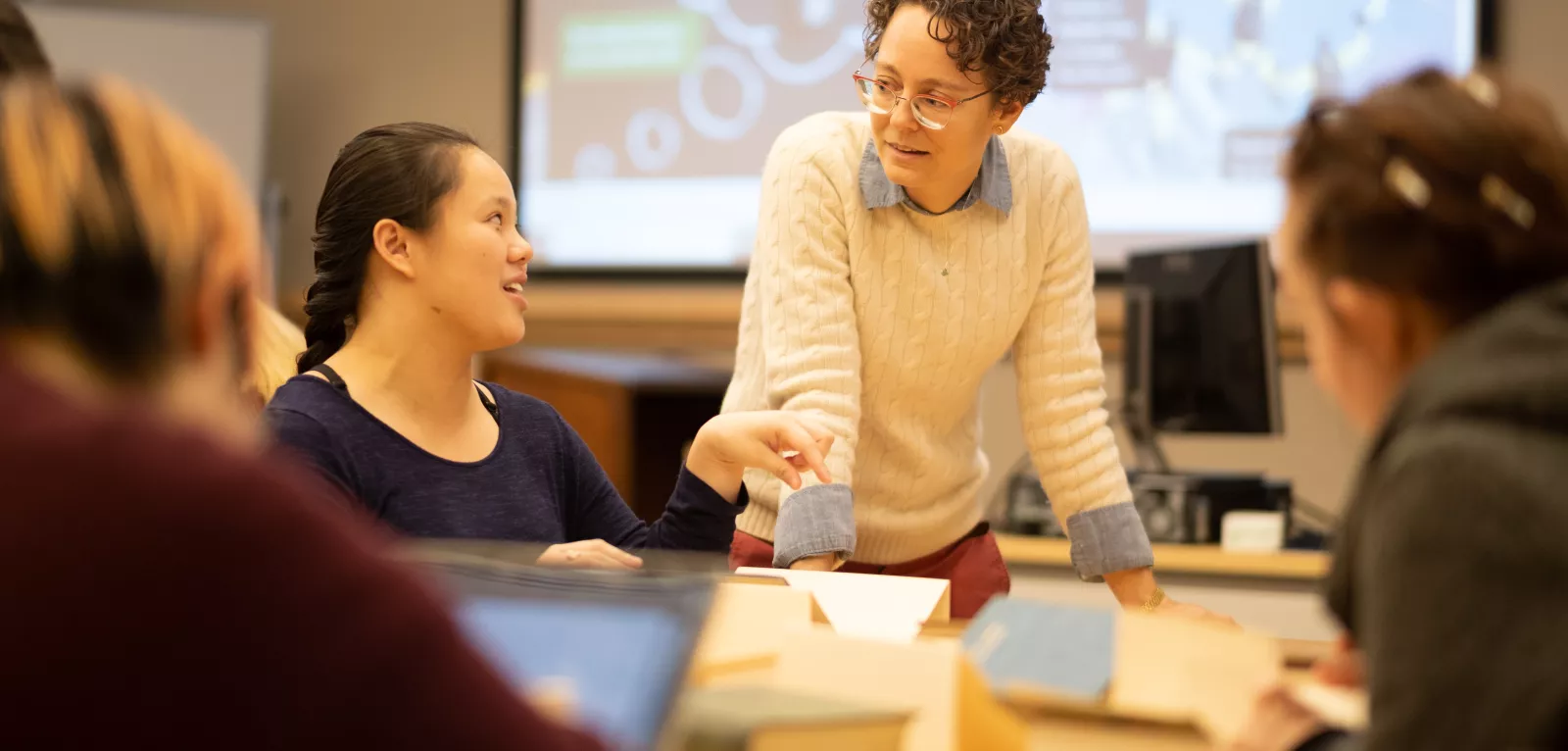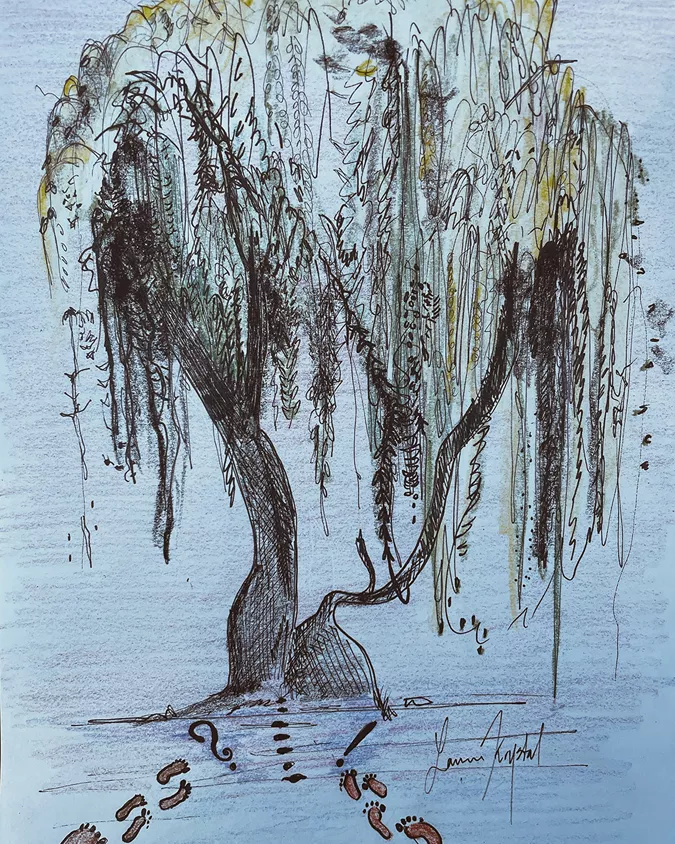
Teaching and Learning Institute
Funded originally by a grant from The Andrew W. Mellon Foundation and now supported jointly by the bi-college consortium of Bryn Mawr and Haverford Colleges, the Teaching and Learning Institute (TLI) embraces a partnership model of professional development. Through providing forums within which students, faculty, and staff can reflect and engage in dialogue throughout the academic year, the TLI supports members of the bi-co community in thinking about and developing approaches to the creation of inclusive spaces and practices.
"Weeping trees grow flexible branches that flow with the wind, create openings and change with the seasons. Pedagogical partnerships require flow, flexibility and movement to inspire transformation in teaching and learning. The image of the weeping tree is meant to capture this and encourage us to look towards the wisdom of natural beings as we seek change in our approach to building more joyful and meaningful connections in educational spaces."
Reflections by participants highlight four common themes of TLI programs:
1. Deepening Awareness and Engagement
By entering pedagogical partnerships, students, faculty and staff deepen their capacity to be reflective regarding the learning process, catalyzing curiosity and heightened engagement.
“My dialogue with my student consultant has been an ongoing intercambio [exchange] in which I was able to get a sense of how others experience the class. Because of this dialogue, rather than always privilege what worked for me as a student, I work to draw out how different pedagogical practices [and] learning styles can illuminate the space of a classroom for all those around the table.”
“Now I am constantly aware of how pedagogy works or fails, and I find myself constantly studying the teachers I admire — perhaps more than I study the material they teach. I think this sense of elevated consciousness alone will shape my thinking far into the future; now that I have been so exposed to this level of awareness, I really don’t think it would be possible for me to enter a classroom WITHOUT thinking about the way class is being taught (as opposed to simply what is being taught).”
2. Embracing Transformative Partnerships
Through developing partnerships that cross traditional boundaries of role and responsibility, Bi-Co faculty, staff, and students transform both education and themselves.
“The TLI seminar was a transformative experience; re-connected me with my love of, and investment in teaching; recharged my understanding of the connections between the classroom, my scholarship, and my work as a member of my college community; reawakened my faith in the potential academic institutions have to be sites of innovative and vital work for all who are part of the community.”
“Through this [TLI] work I have come to feel more connected to Bryn Mawr, my peers and the faculty. My involvement has been a period of great personal growth and prompted self reflection I don’t think I would have been able to do otherwise or on my own.”
3. Gaining New Perspectives
Working as partners, faculty, staff, and students gain access to one another’s educational experiences and perspectives, at once complicating and clarifying their vision of education and each other.
“I like that [my student consultant’s] presence—her comments, but her presence itself too—not only gives me the benefit of her lighthouse-like observations, but makes me observe from the same kind of remove, even as I am engaged in the everyday work of teaching the class. This split experience of my class as an immediate act and experience, but also a larger narrative that I’m looking down upon, is something I hope to carry into all my teaching.”
“This experience has made me increasingly alive to both the professor’s perspective and to my own responsibilities as a student in creating and maintaining a positive and effective learning environment for all members of the class.”
4. Sharing the Responsibility for Learning
Breaking out of separate and mutually exclusive roles, faculty, staff, and students assume responsibility as both learners and teachers.
“Working with a Student Consultant gave me a sense of students being able and wanting to take certain pedagogical responsibility, and the counter of that is me taking a learning responsibility.”
“When you are in a college environment or any environment as a student, you think you are there to get a lot. And this has given me a lot of confidence in that I have a lot of things to give. I can give in terms of teaching others. I can give in terms of giving others ideas about how to teach others. And I don’t think I would have had that if I wasn’t involved in the TLI."
